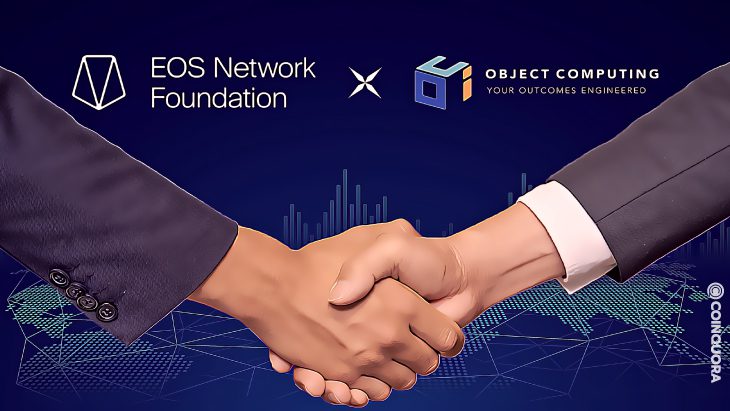- The EOS Network Foundation announces laying down plans to build its platform’s core software.
- A partnership between EOS and Object Computing is back on the table.
- ENF Executive Director Yves La Rose comes with interesting comments on the news.
Having successfully wrested control of the EOS blockchain from its controversial lead developer last year, the EOS Network Foundation (ENF) has laid out how it intends to build on the platform’s core software.
To do so, it’s partnering with the consulting firm Object Computing, which has already played a key role in the initial development of the EOS.IO software, an open-source smart contract blockchain platform that sits at the heart of the EOS ecosystem.
The most urgent improvements to EOS.IO were identified in a series of “Blue Papers”, or research projects conducted by the ENF into what can be done to restore the EOS project to its former greatness.
EOS was once billed as a potential “Ethereum killer” and raised a record-breaking $4 billion via an ICO in 2018. However, the project stalled as a result of the apparent disinterest of its chief developer, Block.One, forcing the EOS community to team up in order to take over the project under the recently-created ENF.
The four Blue Papers cover areas such as a framework for security analysis and contract audits for EOS.IO apps, the improvement of EOS node endpoints to provide greater usability for dApps built on the network, new standards for wallets and SDKs built for EOS, as well as general improvements to the underlying blockchain. Following a review of this research, the ENF said it has identified the Transaction Lifecycle outlined in the API+ Blue Paper as its highest priority objective.
ENF said it will work with Object Computing to develop a new Transaction Lifecycle that aims to fix some of the biggest issues identified in the API+ paper. They intend to build an entirely new API endpoint with Subjective Billing features that will make it possible to estimate resource usage (gas fees) for any kind of transaction, something that was mentioned as a major pain point in EOS’s existing API. At the same time, the Subjective Billing feature will be designed in such a way that it reduces the rate of “lost transactions”.
In addition, the improvements will also focus on transaction tracking and relaying, making it easier to develop an efficient block explorer for EOS.
Despite Object Computing’s previous association with Block.One, the ENF highlighted its work on blockchain projects with organizations such as NASA, Motorola, Bayer and Rio Tinto as examples of its strong credentials.
ENF Executive Director Yves La Rose said the project is fortunate to be able to work with its experienced team of developers, and that their continued collaboration will help build significant value for the network.
La Rose said,
Having access to multiple industry leading development teams will undoubtedly strengthen EOS’s core codebase, with many teams working in parallel to implement a consolidated roadmap of products and features as outlined in our Blue Papers


